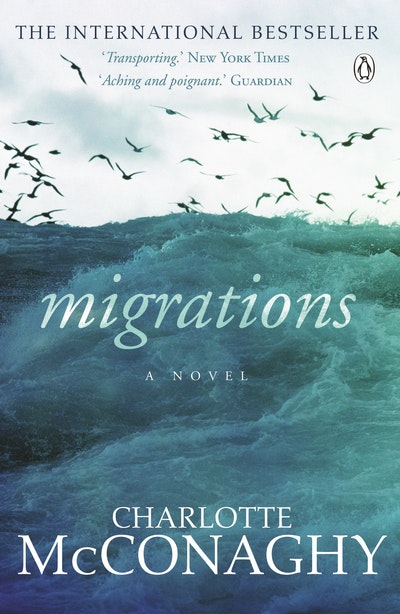

One significant catastrophe, hinted at throughout the novel but only revealed toward the end, launches her on her final quest. Franny continues that tradition, taking advantage of her husband’s patience by isolating herself, remaining aloof and distant, and ultimately disappearing when he needs her most.įranny also commits crimes, intentional or not, against unwitting strangers. In a sense, Franny’s entire family has migrated apart, causing extinction on a basic level. Each of these characters carries a secret and commits an act that isolates them from Franny and the larger community. Rather, McConaghy uses them to set the stage for the crimes we visit on ourselves and other humans.Īt points, Franny has been abandoned and betrayed by her mother, father, and grandmother. Yes, Migrations is a novel of the crimes we inflict on nature, but again, such killings are not the point. The captain, Ennis, and his crew follow Franny, hoping the remaining birds will lead them to one final, mythical catch. They, too, have pasts to outrun: Trawlers such as theirs have left the sea depleted, and they are at risk of finding their profession outlawed. She enlists the crew of a fishing boat to carry her on this voyage. Franny tracks the birds, both to help her husband (a professor and advocate for the few surviving animal species) carry out his work and to continue her own flight from long-borne guilt. Much of the novel focuses on what is expected to be the final flight of the Arctic tern, of which only three are believed to survive. She is also talented at fleeing painful situations. It would do a disservice to the reader to reveal too much, but suffice to say, Franny is well-schooled in horrific injuries inflicted by loved ones and in revisiting these injuries on herself. McConaghy instead uses this catastrophe as the backdrop for the troubles and failings of her protagonist, Franny.įranny is a woman haunted by her troubled past and that of her family.

The fate of nature and humanity is not the point of the story, however. Humans have done all of this with little regret or remorse.

Animals needed for food, such as fish, are kept in commercial captivity. Those not exterminated have simply lost their habitats to our need for ever-expanding space, although we’ve kept a few animals in “sanctuaries” to convince ourselves we haven’t committed mass slaughter. Her world is one in which humans have rendered nearly all wild animals extinct, hunting prey large and small until few remain.

Charlotte McConaghy’s powerful new novel, Migrations, introduces us to a future marked by ecological collapse and mass extinction.


 0 kommentar(er)
0 kommentar(er)
